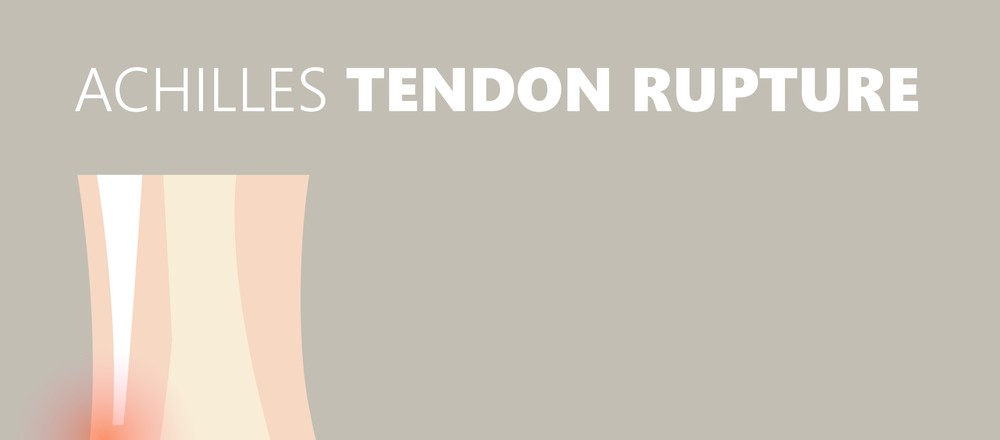Bumps and bruises happen from time to time, but what about a more serious injury? Your child takes a tumble off the playground, or you trip down a flight of stairs. Or perhaps you get injured in a car accident or while playing your favorite sport. Injuries can happen anytime, and some require emergency attention so you can properly heal and recover. To best take care of yourself and your loved ones, it helps to understand when it’s time to call the doctor. Internal injuries may not always be so obvious, but immediate attention can be critical to ensuring a safe and healthy recovery. In some cases, you may visit an urgent care near you, or you may have a more serious injury that requires a trip to the emergency room. Here’s everything you need to know about orthopedic emergencies and how an orthopedic surgeon can help you.
What Is an Orthopedic Emergency?
 An orthopedic emergency refers to an injury that affects bones or soft tissues and requires immediate medical treatment. Orthopedic surgeons are doctors who treat injuries that impact the musculoskeletal system, which includes bones, joints, muscles, tendons, ligaments, and other soft tissues. While they have surgeon in their title, not all orthopedic surgeons perform surgery. And not all orthopedic emergencies will require surgery. However, orthopedic surgeons specialize in musculoskeletal injuries and can diagnose an acute injury or trauma. You may need emergency medical attention to avoid further trauma or damage to the body. Once you visit urgent care or the emergency room, the physicians will treat your immediate injuries. Your continued treatment and care will occur elsewhere, like at an orthopedic clinic near you. You can also visit an orthopedic clinic for same-day visits for more minor injuries that require treatment sooner than later.
An orthopedic emergency refers to an injury that affects bones or soft tissues and requires immediate medical treatment. Orthopedic surgeons are doctors who treat injuries that impact the musculoskeletal system, which includes bones, joints, muscles, tendons, ligaments, and other soft tissues. While they have surgeon in their title, not all orthopedic surgeons perform surgery. And not all orthopedic emergencies will require surgery. However, orthopedic surgeons specialize in musculoskeletal injuries and can diagnose an acute injury or trauma. You may need emergency medical attention to avoid further trauma or damage to the body. Once you visit urgent care or the emergency room, the physicians will treat your immediate injuries. Your continued treatment and care will occur elsewhere, like at an orthopedic clinic near you. You can also visit an orthopedic clinic for same-day visits for more minor injuries that require treatment sooner than later.
Top 5 Orthopedic Emergencies
Sometimes an injury or trauma requires an ambulance ride to the emergency room. You may need to go to the hospital immediately if you experience severe bleeding, lose consciousness, or are in a serious accident. Any sudden changes to your condition after a recent surgery or procedure should cause you to call your doctor and get the care you need. Here are the top 5 types of orthopedic emergencies that may require a trip to the emergency room and follow-up care with an orthopedic doctor.
Fractures
A broken bone is also known as a fracture and is considered an orthopedic emergency. You may need medical attention immediately if you suffer a broken bone. Depending on what bone you break and the type of fracture, you might not be able to use the affected limb, like with a broken leg. One type of fracture, known as a compound fracture, refers to when a broken bone breaks the skin. This will cause bleeding, and the open wound will put you at greater risk for infection. A compound fracture and other types of broken bones may require a doctor to reset the bones using a variety of tools or a surgical procedure.
Dislocations
Two or more bones come together and meet at the joint. A dislocation refers to a situation where one or more of these bones is out of its normal positioning. In many cases, it can be difficult to tell if you have a dislocation or a fracture because of the pain and other similar symptoms. Most dislocations require medical attention in order to help prevent permanent damage. A dislocated joint can also cause damage to surrounding tissues or irritate nearby nerves and blood vessels, so you want to get this type of injury checked out by a doctor. A dislocation may cause tingling and numbness, and you may not be able to move the affected area. You or others nearby may also notice a visible deformity and sudden bruising and swelling. Sudden swelling and joint pain along with fever and chills could also be a sign of infection, which requires immediate medical attention.
Concussions
A sudden blow to the head can lead to a mild traumatic brain injury known as a concussion. While many associate concussions with high-impact sports like football, concussions can happen to anyone. You can suffer a concussion from hitting your head during a car accident or fall. A hit to the head hard enough can cause your brain to collide with the surrounding skull, leading to swelling in and around the brain. Common concussion symptoms include headaches, blurred vision, dizziness, and disorientation. Signs of a severe concussion include nausea, vomiting, blackouts, and memory loss. Any time you suspect a concussion, you should seek medical attention as soon as possible.
Ruptured Tendons
You may have a ruptured tendon if you hear a sudden snap or popping sound followed by immediate and intense pain. A ruptured tendon can occur in the shoulder, biceps, or along the back of the leg. Direct trauma or too much pressure on the area can cause a tendon to tear. A ruptured tendon will cause rapid bruising in the area, and you will likely have difficulty moving your affected arm or leg. For example, a ruptured Achilles tendon might make you unable to bear weight on the foot. A deformity in the area can also signify a ruptured tendon. If you are having trouble using a limb, then this would be considered an orthopedic emergency.
Spinal Injury
There are many types of spinal injuries, and you want to be very careful with this type of injury to avoid permanent paralysis or other serious complications. An injury to the head, neck, or back can cause pain, weakness, numbness, or even paralysis. If you suspect someone has a spinal injury, you want to call 911 and keep the person still to avoid further aggravating the injury. Never move a person’s head or neck when they have suffered a serious injury until paramedics can attend to the scene.
What to Expect with a Sudden Orthopedic Injury
 You should go to the emergency room right away if you experience loss of consciousness, have a compound fracture, are bleeding profusely, or cannot use an affected limb due to a fracture or dislocation. If you do not have a severe, acute injury but have noticed issues with mobility, then you may want to do a same-day visit to your Lithia Springs orthopedic clinic. Here’s what you can expect when an emergency orthopedic injury.
You should go to the emergency room right away if you experience loss of consciousness, have a compound fracture, are bleeding profusely, or cannot use an affected limb due to a fracture or dislocation. If you do not have a severe, acute injury but have noticed issues with mobility, then you may want to do a same-day visit to your Lithia Springs orthopedic clinic. Here’s what you can expect when an emergency orthopedic injury.
Emergency Treatment
If your injury requires an emergency room trip, you will receive medical attention from hospital doctors and staff. They will treat your immediate medical needs, like setting a broken bone or stopping any bleeding. Sometimes, you may need a splint, cast, or even emergency surgery. The ER doctors want to ensure you are stable before sending you home for follow-up care.
Follow-Up Treatment
After you get medical attention at a hospital or urgent care, you will need an orthopedic doctor for follow-up treatment. The recovery process for an orthopedic injury will primarily take place at an orthopedic clinic for follow-up treatment. An orthopedic surgeon can provide comprehensive outpatient care while you recover from your injuries. They will develop a treatment plan that addresses your injury and determine how you can best recover. Follow-up treatment may also include meeting with a physical therapist to learn about how to safely recover and rehabilitate.
Recovery & Rehabilitation
Your recovery and rehabilitation from an orthopedic injury will differ depending on the type and severity of the injury. Your treatment plan will include ways to manage your pain and reduce any swelling and inflammation in the area. Some orthopedic injuries may require supportive or assistive devices to help you while you recover. You may need crutches or a brace to provide stability and support and help you reduce pressure and strain on the injured area. A physical therapist can coach you through stretches and exercises to help you regain strength and mobility after the injury.
Visit AICA Orthopedics in Lithia Springs to receive comprehensive treatment and care after an orthopedic injury. Our orthopedic clinic provides treatment for a wide range of injuries, including fractures, dislocations, car accident injuries, and sports injuries. We will work with you after you receive emergency medical attention to ensure you can safely and effectively recover from your injuries. At AICA Orthopedics in Lithia Springs, our doctors include orthopedic surgeons, neurologists, chiropractors, and physical therapists who all work together when you need a multi-specialty approach to your recovery and rehabilitation. We offer on-site diagnostic imaging tools like X-rays and CT scans so we can diagnose injuries and track your progress to ensure everything is healing properly. Contact us today to learn more about how we can support you after an injury and help you get on the road to recovery.
